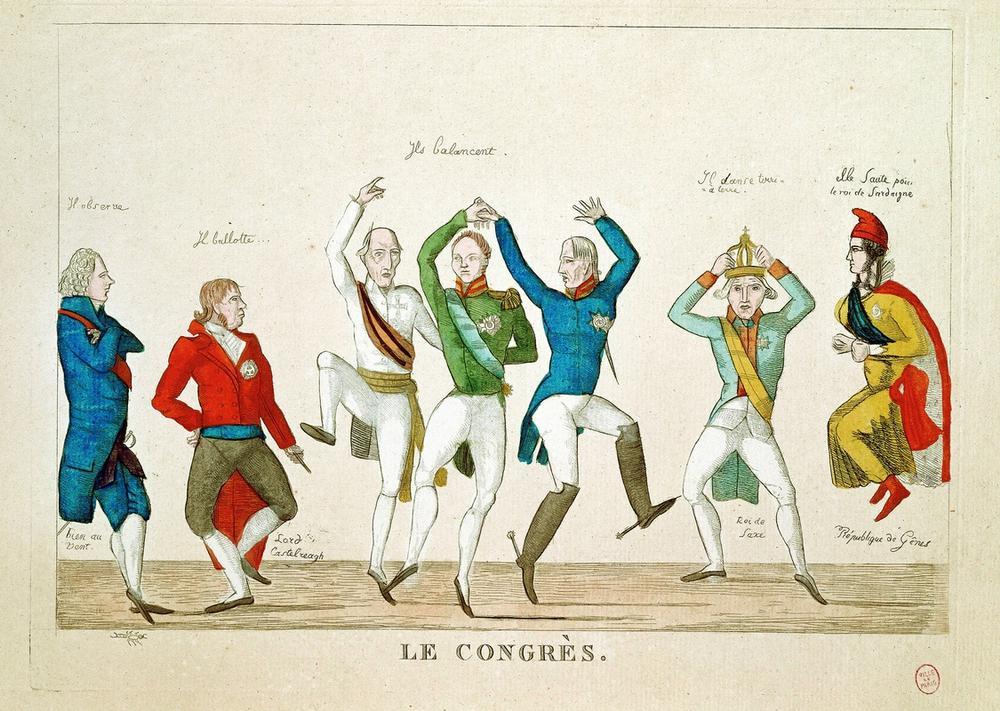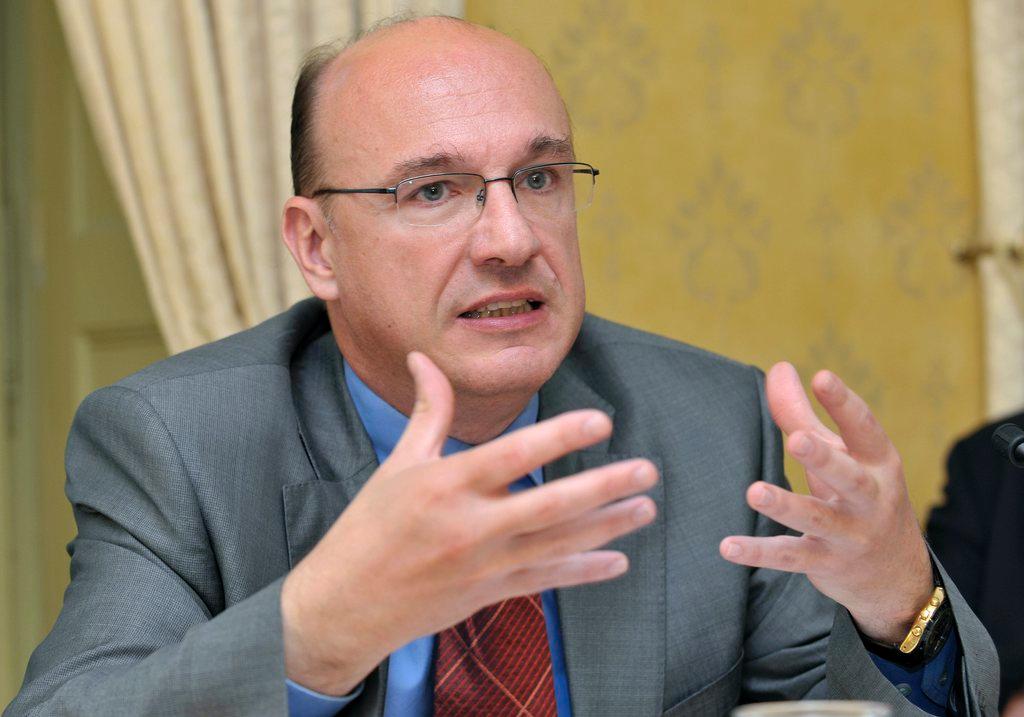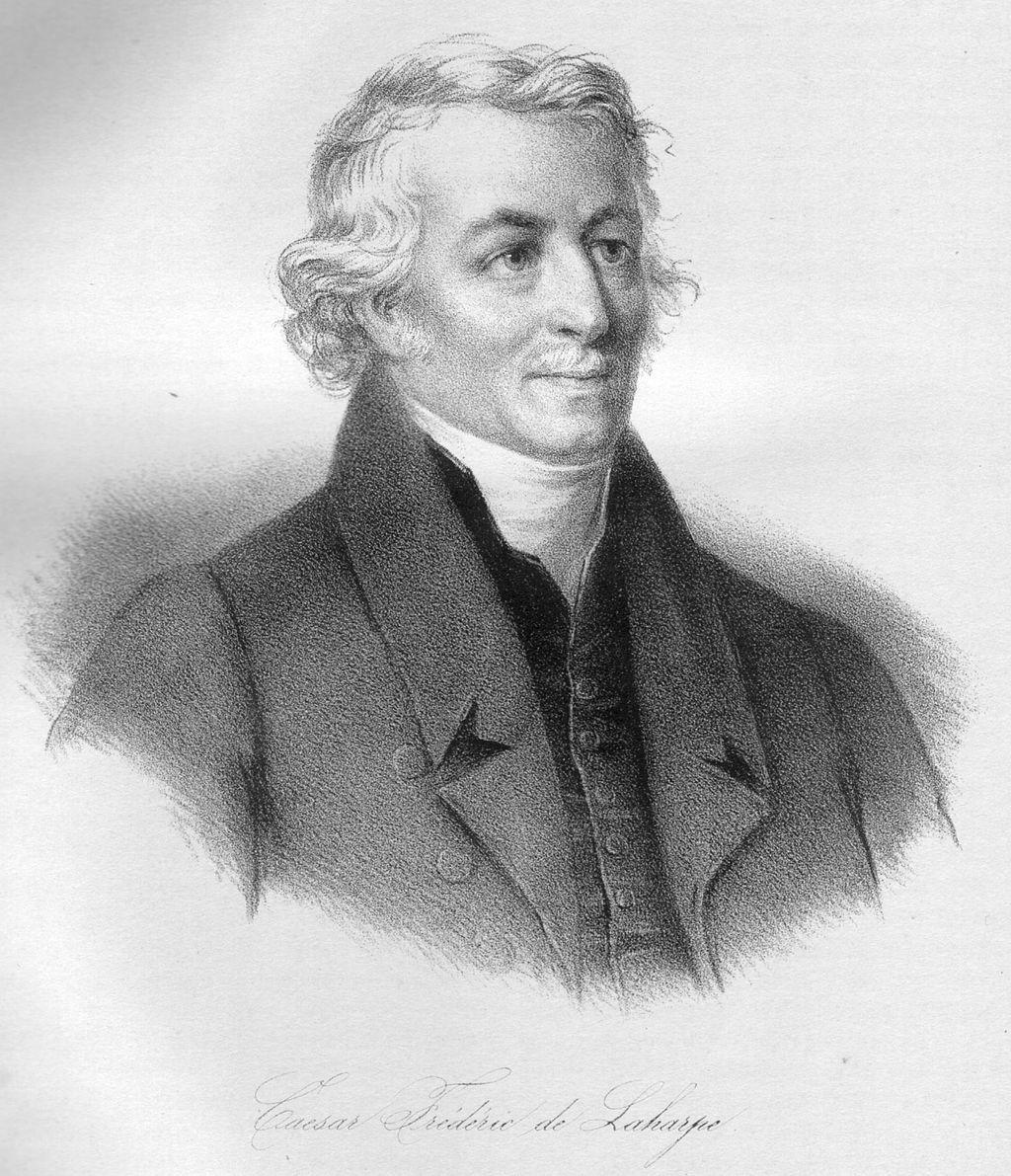
The day Switzerland became neutral

The neutrality so strongly associated with modern Switzerland originated in a congress 200 years ago, when the Great Powers met in Vienna to reorganise the territorial boundaries of Europe.
But rather than being a conscious choice, neutrality was imposed on Switzerland by stronger countries that were determined to isolate France in the wake of the revolutionary wars which had rocked the continent, argues historian Olivier Meuwly.
When it was invaded by France in 1798, Switzerland was a patchwork of 13 cantons, allies, bailiwicks and other territories that effectively disappeared when it became a “single and indivisible” republic in the French model. The cantons became mere prefectures, and the political situation was tense when Napoleon imposed mediation. Switzerland was formed into a country of 19 autonomous and equal cantons united under a common regime. Recent interpretations of history have defined the Act of Mediation as the origins of “modern” Switzerland.
But as a satellite country of France, Switzerland suffered the brunt of the Napoleonic debacle of 1814, and its future was to be decided in Vienna at a meeting of the powerful victors.

swissinfo.ch: What was the real significance of the Congress of Vienna for Switzerland?
Olivier Meuwly: The stakes were high. There were two camps. The cantons of the Confederation of 1798 wanted a return to the old regime, whereas the new cantons wanted to maintain their autonomy.
The roles of different people were important. Frédéric-César de La Harpe, former tutor to Tsar Alexandre I, became involved on behalf of canton Vaud to conserve its independence, therefore maintaining a Switzerland of 22 cantons (the 19 cantons resulting from the Act of Mediation, plus Neuchâtel, Geneva and Valais). Like everyone, he was hostile to Napoleon, but there was one thing worth saving from his system: mediation and the structure of 22 cantons which assured peaceful equilibrium of a Switzerland still troubled, and despite everything, important to the Great Powers.
Olivier Meuwly
Historian Olivier Meuwly has a doctorate in law and letters from the University of Lausanne. He is currently deputy general secretary of the Department of Finance and External Relations for Canton Vaud. He is the author of several works of history on Canton Vaud, Switzerland, political parties and ideas.
swissinfo.ch: Why was little Switzerland important to the Great Powers?
O.M.: Switzerland was one of the buffer regions between a France which needed containing, and Austria. Everyone wanted to control this territory at the foot of the Alps which ensured France was surrounded.
Neutrality suited everyone. Switzerland, incapable of stability, would become neutral and the Swiss could work it out, even if they didn’t feel neutral. There was no project for neutrality; circumstances dictated that Switzerland would be forced into neutrality by others.
In the end, it was Alexandre I, as head of the coalition, who decided Switzerland’s lot. In agreement with de La Harpe, he decreed that the Switzerland of 22 cantons would be maintained, even though the Austrian Chancellor Metternich preferred the canton of Bern and the reestablishment of the former Confederation.
swissinfo.ch: So modern Switzerland is thanks to the Russians…
O.M.: It’s always delicate to attribute historical events to people. But in this case, I believe the role of certain people was considerable. If there had not been such very strong lines of friendship, of mutual respect between de La Harpe and Alexandre, would the Tsar have accepted the claims made by the Vaudois? You can’t rule it out, but the existence of personal links helped.
De La Harpe is without a doubt a Swiss who would enjoy a more important position in world history. Never had a Swiss been so close to the big global questions and important leaders. He was in constant, close contact with the Tsar, from the arrival of the Russians in France until the end of the Congress of Vienna. He was the head of the antechamber, the personal secretary. He was one of the important links between the Tsar and the rest of the world.
swissinfo.ch: Some say Switzerland’s neutrality began with the Battle of Marignano in 1515 because following the defeat, Switzerland pulled back from large European military engagements. What do you think?
O.M.: To me it’s a stretch. Not even all the Swiss cantons were present at Marignano. It seems to me difficult to weave links between this battle and neutrality.
In fact, the first snippets, at the level of international law, which would give rise to recognition of an independent Switzerland were in the Treaty of Westphalia in 1648, which ended the Thirty Years’ War. Recognition of Switzerland as an entity and more or less neutral began sometime around then.
swissinfo.ch: Switzerland did not claim neutrality in 1815, although today neutrality is one of its essential characteristics. How did this evolution come about?
O.M.: In the 19th century, neutrality was not an essential guiding principal. It was simply a consequence of an independent Switzerland which was becoming known on the international stage. But the Swiss understood that if they weren’t neutral, they would have to take sides. But which one? During the Franco-Prussian war of 1870, as during the First World War, Switzerland declared itself neutral. Neutrality was in fact a good way of not choosing.
The humanitarian aspect would give substance to neutrality. This notion of neutrality would become very useful; not only in retreat, but as a means of being available. After the two world wars, Swiss neutrality experienced its glory days during the Cold War.
We can also see that this neutral Switzerland has always been interesting. De La Harpe, a republican, obviously did not become the tutor of the future Tsar because of his political opinions. However, he spoke French, the diplomatic language, and Catherine II took him into her service because she preferred to see her grandson educated by a Swiss republican rather than a French aristocrat who could be a double agent. The fact that Switzerland was always a little bit removed from the large military and political events was an advantage. Especially after 1945, when the country could really thrive in this role of good offices.

swissinfo.ch: Despite its advantages, neutrality is often the subject of debate. Think of the concept of “active neutrality” as put forward by former Foreign Minister Micheline Calmy-Rey. More recently, her successor Didier Burkhalter has also been criticised in Switzerland for his role in the Ukrainian crisis as president of the [Organization for Security and Co-operation in Europe]…
O.M.: Neutrality cannot be a rigid concept. All political principles must be submitted to discussion, confronted with events of the day, their pertinence and evolution. I am also a fan of direct democracy, but it’s not a sacred norm delivered by a higher being. It can also be debated.
That’s a bit of the problem that Switzerland has: we tend, on both the right and left, to make things into myths and that poses problems. It’s typical of neutrality. It’s a notion that is necessarily in confrontation with reality. What does it mean to be neutral? That can change. We can never say, we’re neutral, full stop. That means nothing in itself.
Congress of Vienna
The Congress of Vienna was held from September 18, 1814, to June 9, 1815. Its aim was to reorganise Europe to balance power between those victorious over Napoleon: Russia, Britain, Prussia and Austria. The Swiss sent three representatives to Vienna. Several cantons, regions and villages did the same. Because of often divergent interests, the Swiss representatives gave the impression of a divided confederation. Following the surprise return of Napoleon to France, the Congress adopted a declaration relative to Switzerland on March 20, 1815. It stated that the perpetual neutrality of Switzerland was in the interests of the European states and guaranteed the integrity of the 22 cantons.
(Source: Swiss Dictionary of History)
Translated from French by Sophie Douez

In compliance with the JTI standards
More: SWI swissinfo.ch certified by the Journalism Trust Initiative


























You can find an overview of ongoing debates with our journalists here . Please join us!
If you want to start a conversation about a topic raised in this article or want to report factual errors, email us at english@swissinfo.ch.